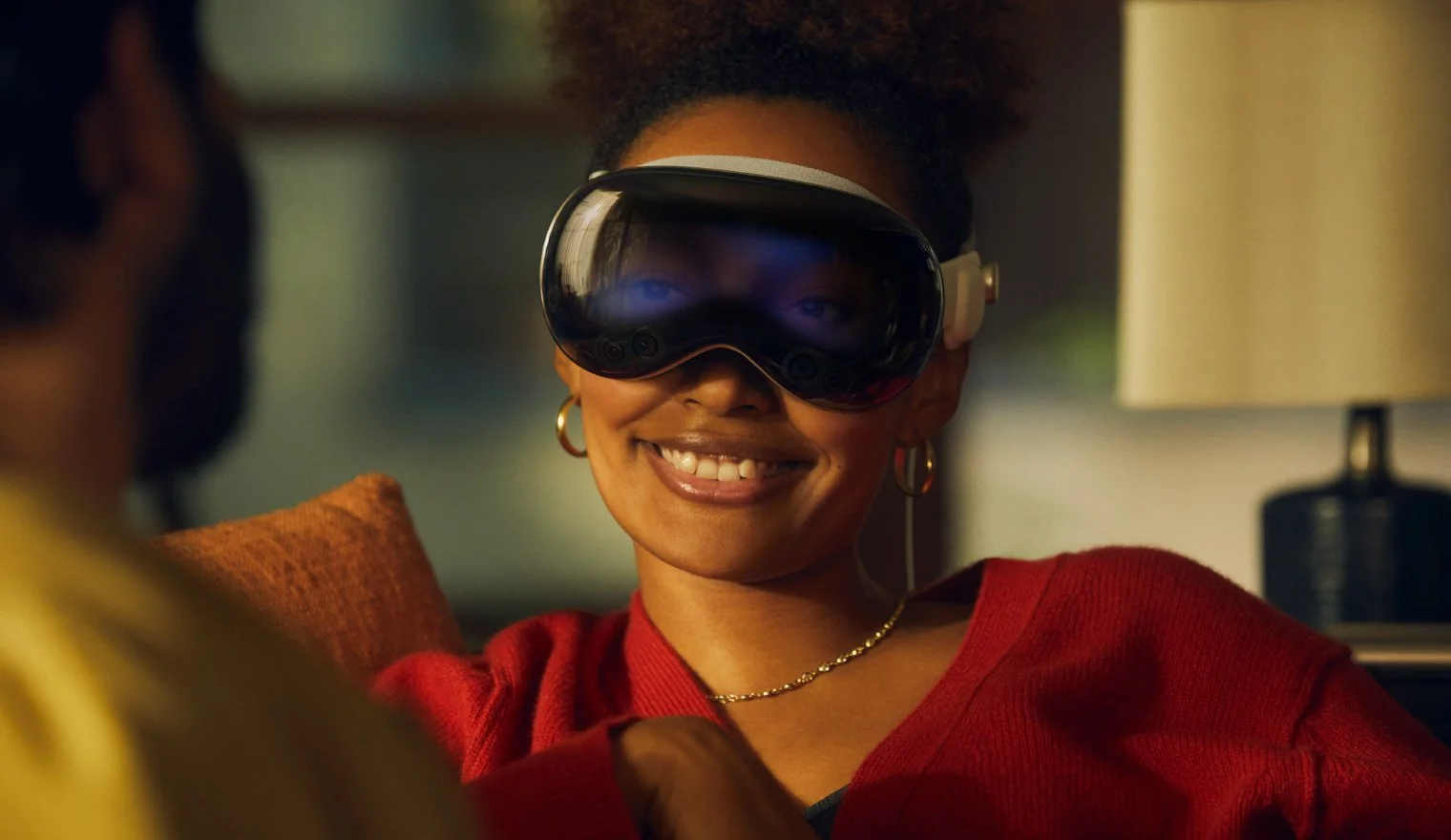I'm curious, but uneasy about Apple's Vision Pro
Earlier this week, Apple announced their biggest product launch since the Apple Watch eight years ago.
The Vision Pro “seamlessly blends digital content with your physical space” by wearing an immersive pair of goggles which cover half of your face (including the windows into your soul). It allows you to combine augmented and virtual reality while, Apple claims, still take part in the real world.
The real world? Really?
I can see the possibilities - how the Vision Pro might affect the future of work, or immerse us in a virtual world which expands our knowledge and experiences.
But the product also makes me uneasy.
Firstly because Apple will make this product work. Like the Mac, the iPod, the iPhone and the Watch before; Apple will make ground breaking changes to an existing product category and transform it into the mainstream. This won’t happen with the first iteration. Many will find the goggles intrusive, ridiculous, expensive… or all three.
But Apple will get there. Initial hands-on reviews talk glowingly about the quality of the product.
Secondly, and more importantly, the goggles will place a barrier between us and the real world.
Staying connected
As a web designer you'd think I'd want people to spend more time looking at screens (particularly if it's a web browser). However, what I really want is for you to do what you want do as easily as possible so you can spend more time outside or meeting friends.
It's this connection, being in the real world, that is the most problematic aspect of Vision Pro.
Apple claims: “Vision Pro helps you remain connected to those around you. EyeSight reveals your eyes and lets those nearby know when you’re using apps or fully immersed in an experience.”
Except those eyes aren't your eyes. They are a simulated version of your eyes which appear on the surface of the goggles.
Simulated eyes…
Talking to someone with simulated eyes overlaid on the screen would feel unnatural and just plain wrong. Eyes are an integral part of our non-verbal communication. Will the simulated eyes accurately reflect how the person feels at that precise moment?
On video calls it will show a “persona” avatar - a 3D lip-synced scan of your face without the goggles. Can the facial expressions be altered to portray a different emotion to the one that the person is feeling?
Or is this something we will get used to in the same way as we have with Zoom calls?
A solitary experience
Wearing the goggles will encourage a solitary experience. You are one step removed from reality. No matter how ‘real’ it might feel, it still isn't real.
Being immersed in a film or a big sporting event with others in the same room, all with their goggles on, won't be the same shared experience.
The smartphone has impacted the way we interact with others and is often cited as a contributor to the growth in mental health problems. Yet even a phone doesn't cut us off from our surroundings in the way these goggles will.
The more time we use screens, or augmented reality, the more we are wrapped up in our own cocoon and the less time we interact with the real world.
An antidote...
The morning after Vision Pro was announced I chose to walk to my local co-working space, Lifework. I could have saved 15 minutes by driving. But I knew walking, even on a cloudy summers day, would be of more benefit (both for me and the world’s CO2 emissions).
No goggle will replicate that experience.
Footnotes
Apple's Vision Pro on Apple’s Website.
Hands-on with the Apple Vision Pro by Tech Radar.
How Visionary is the New Vision Pro? in which Om Malik contends the Vision Pro is the third part of how Apple has revolutionised our relationship with devices:
Mac redefined the idea of digital “creating.”
iPhone redefined the idea of digital “connectedness.”
Vision will redefine the idea of digital “consumption.”
I didn't feel the same way when Facebook launched Meta Quest. Mainly because Meta don't have the same track record of developing new products (but partially because of the cheesy launch ‘videos’)…


